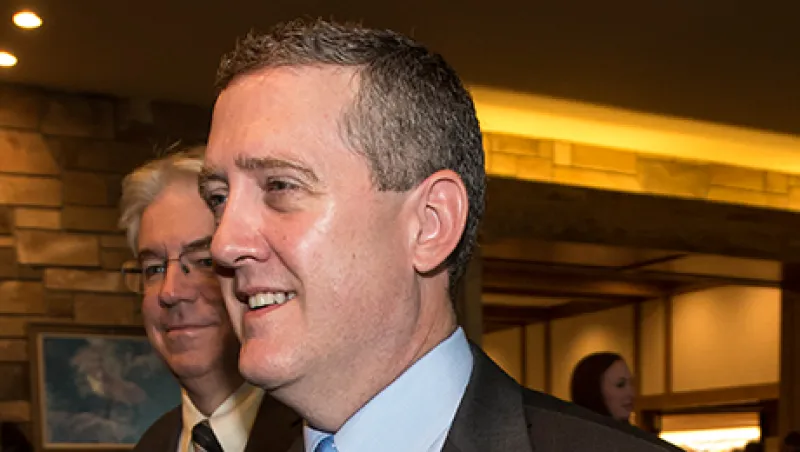No strong signal on when the Federal Reserve plans to hike rates came out of the Jackson Hole Economic Policy Symposium this past week, despite numerous officials of the central bank weighing in at the annual event hosted by the Federal Reserve Bank of Kansas City. In particular, Stanley Fischer, the Fed vice chair, was asked repeatedly about what action the Fed may take at its next policy meeting, in September.
When asked that question on Friday, Fischer responded, “We are still watching how it unfolds. ... I wouldn’t want to go ahead and decide right now what the case is, compelling or less compelling,” for rate rises. During separate interviews Saturday, he reiterated his noncommittal stance: “I will not, and indeed cannot, tell you what decision the Fed will reach by September 17.”
So what did we learn from the 2015 Jackson Hole confab? Here are three main takeaways:
A September Rate Increase Is Still on the Table
The market volatility last week did not greatly alter Federal Open Market Committee members’ expectations for U.S. economic growth and inflation. With little change in their outlook, the Fed appears to be open to the possibility of a rate increase as early as September. No doubt, FOMC members will be paying close attention to the U.S. Department of Labor nonfarm payrolls report this Friday for the latest developments in jobs growth.Since changes to monetary policy generally have a lag of one to three quarters, policymakers often look to economic forecasts when considering whether or not to make policy moves. St. Louis Fed president James Bullard and Cleveland Fed president Loretta Mester both commented on how their outlook for strong growth and employment remains unchanged in spite of the recent volatility in financial markets.
Even Fischer noted that he still expects inflation to strengthen: “There is good reason to believe that inflation will move higher as the forces holding inflation down — oil prices and import prices — dissipate further.”
Market Turbulence Has Yet to Reveal Underlying Structural Weaknesses
Whereas it is unlikely the price adjustments in equities, foreign exchange and other asset markets are completely played out, the financial system seems to have held up well under stress so far. This gives U.S. policymakers some assurance they can move forward with removing accommodative monetary policy without creating fissures in financial stability.Given the size and volatility of price moves last week, markets seemed to handle the gyrations well, and trading remained orderly for the most part. Significantly, there was little evidence of major strains on financial institutions or exchanges as margins were called. Payments were made, and trading continued.
China Remains a Wild Card in the Global Economic Outlook
Although there is not likely to be an immediate impact on U.S. monetary policy, the sharp economic slowdown in China will be a focus of attention for Fed policymakers going forward. The Chinese economy has been a strong and steady source of economic growth since the 2008–’09 financial crisis, and its slowdown — as well as the response by Chinese authorities — is already rippling through commodities, forex and other markets.Two big questions remain with regard to China in the near term, however: How sharply is the Chinese economy slowing down, and what can — and will — Chinese authorities do about this? As the answers to these questions unfold, they will have implications for global growth and inflation. Policymakers in all countries will be paying close attention as the economic situation in the world’s second-largest economy evolves.
Shehriyar Antia is the founder and chief market strategist at Macro Insight Group, an investment strategy firm based in New York. Prior to founding MIG, he worked on quantitative easing programs and monetary policy as a senior market analyst at the Federal Reserve Bank of New York.
Get more on macro.






